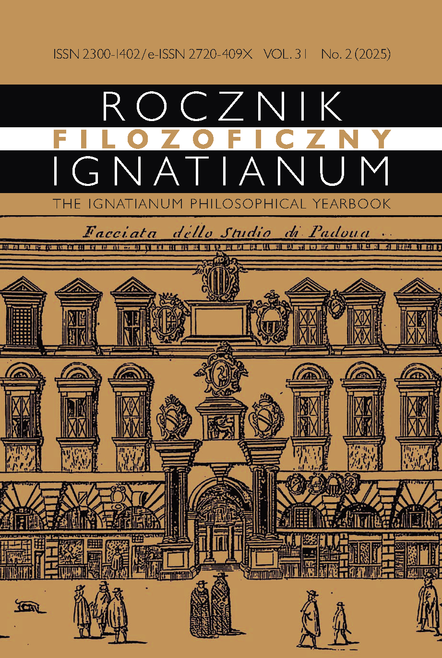Why Were the Psalms in the Translations by Miłosz and Brandstaetter Not Included in the Liturgy?
Abstract
This article focuses on a verseological analysis of Brandstaetter’s psalm translation and a theological analysis of Miłosz’s translation. By showing the differences in the translations of Psalm 7 in particular, the author puts forth the thesis that Miłosz adopts the view, widespread in some Catholic circles, that in the case of the Old Testament and the Psalms, priority should be given to the Masoretic text variants and the Jewish interpretative tradition. This view distances the translation from those adopted in the Millennium Bible and the Breviary. The author aims to demonstrate that this interpretation is not justified by either the history of the texts, as the Psalms were the «common property» of Jews and Christians in the era of Jesus and early Christianity, or by contemporary translation theory. Another argument against using Miłosz’s translation in liturgy is its tendency to make the language archaic, a criticism that was raised when the translation was created. Against the background of the two analyzed translations, the author points out the advantages of the Breviary translation by Skwarnicki and Galiński.
References
Archiwum O. Augustyna Jankowskiego OSB, Opactwo św. Piotra i Pawła w Tyńcu.
BibleGateway.com, https://www.biblegateway.com/
Biblia Hebraica, red. Rudolf Kittel, wyd. 13 (Stuttgart: Württembergische Bibelanstalt, 1962).
Biblia Sacra juxta Vulgatam Clementinam, editio electronica, plurimis consultis editionibus preparata a Michaele Tvveedale (Londini, MMV).
Biblia Starego i Nowego Testamentu. Biblia Tysiąclecia, wyd. I, II, III, V (Poznań: Pallottinum, 1965)
Biblia Starego i Nowego Testamentu, oprac. zespół pod redakcją ks. Michała Petera i ks. Mariana Wolniewicza (Poznań: Księgarnia św. Wojciecha, 1982).
Księga Psalmów, tłum. z hebrajskiego Czesław Miłosz. Wyd. II (Paryż: Editions du Dialogue, 1982).
Księga Psalmów, tłum., wstęp i wybór komentarzy rabin Sacha Pecaric (Kraków: Stowarzyszenie Pardes, 2022).
Monastyczna liturgia godzin. Zakony Benedyktyńskie w Polsce (Rzym: Tipografia Poliglotta Vaticana, 1985).
Pismo Święte Starego i Nowego Testamentu. Biblia Tysiąclecia, wyd. I, II, III, V (Poznań: Pallotinum, 1965, 1971, 1988, 2003).
Psałterz, przeł. z hebrajskiego Roman Brandstaetter. Układ Psalmów według porządku Nowego Brewiarza Rzymskiego (Warszawa: Pax, 1971).
Psalmy i kantyki. Układ według liturgii godzin, przekład z tłumaczenia filologiczno-naukowego Marek Skwarnicki i Placyd Galiński OSB (Kraków: Znak, 1976).
Psalmy, tłum. Izaak Cylkow (Warszawa: w drukarni Alexandra Ginsa, 1883.
Reprint (Kraków–Budapeszt: Wydawnictwo Austeria, 2008).
Psalmy. Wstęp – przekład z oryginału – komentarz liturgiczny niedzielno-świąteczny, oprac. ks. Stanisław Łach, uzup. i przygotował do druku ks. Jan Łach (Poznań: Pallottinum, 1990).
Brandstaetter Roman, Krąg biblijny (Warszawa: PAX, 1994).
Ingarden Roman, O dziele literackim.Badania z pogranicza ontologii, teorii języka i filozofii literatury, przeł. Maria Turowicz (Warszawa: PWN, 1960).
Nietzsche Friedrich, Wiedza radosna. La gaya scienza, przeł. Lepold Staff (Warszawa: nakładem Jakóba Mortkowicza, 1910–1911).
Kubiś Adam, Wprowadzenie do krytyki tekstu Starego i Nowego Testamentu. Skrypt dla studentów, wersja 6 (Lublin: Instytut Nauk Biblijnych KUL, 2024).
Meschonnic Henri, Les éats de la poétique (Paris: PUF, 1985).
Nord Christiane, Translating as a Purposeful Activity. Functionalist Approaches Explained. 2nd edition (London–New York: Routledge, 2018).
Pytel Jan Kanty et al., Świat Biblii Romana Brandstaettera (Poznań–Szczecin: Ottonianum, 1999).
Pietkiewicz Rajmund, Biblia Polonorum. Historia Biblii w języku polskim, t. V:
Biblia Tysiąclecia (1965–2015) (Poznań: Pallottinum, 2015).
Sowiński Grzegorz (red.), Wokół rozumienia. Studia i szkice z hermeneutyki (Kraków: Wydawnictwo Papieskiej Akademii Teologicznej, 1993).
Świderkówna Anna, Rozmowy o Biblii (Warszawa: PWN, 1994). Świderkówna Anna, Rozmów o Biblii ciąg dalszy (Warszawa: PWN, 1995).
Wittgenstein Ludwig, Rozważania filozoficzne, przełożył i wstępem opatrzył Bogusław Wolniewicz (Warszawa: PWN, 2000).
Brzozowski Jerzy, „Henri Meschonnic: un maître sans école”, Między Oryginałem a Przekładem 2/60 (2023): 57–68.
Brzozowski Jerzy, „Poezja i antypoezja. Komentarze do Psalmu 120”, Między Oryginałem a Przekładem 1/43 (2019): 9–28.
Brzozowski Jerzy, „Czy istnieje w Polsce szkoła hermeneutyczna w przekładzie?”,
Między Oryginałem a Przekładem IX (2004): 23–38.
Meschonnic Henri, „Propositions pour une poétique de la traduction”, Langages 28 (1972).
Piela Marek, „Skąd rozbieżności znaczeniowe pomiędzy przekładami Biblii Hebrajskiej?”, Między Oryginałem a Przekładem 4/66 (2024): 53–85.
Piela Marek, „Czesław Miłosz jako tłumacz Biblii hebrajskiej”, Studia Judaica 8, 1-2/15-16 (2005): 213–239.
Tronina Antoni, Psalmy. Wstęp – przekład z oryginału – komentarz liturgiczny niedzielno-świąteczny, oprac. ks. Stanisław Łach, uzup. i przygotował do druku ks. Jan Łach (Poznań: Pallotinum, 1990) [recenzja], Roczniki Teologiczne, t. XL, z. 1 (1993).
Copyright (c) 2025 Ignatianum University in Cracow

This work is licensed under a Creative Commons Attribution-NoDerivatives 4.0 International License.
The Yearbook only accepts materials for publication that are free of all conflicts of interest, and that in no way involve conflicts over authorship, copyright, etc. The Editors will take action against any cases of plagiarizing, ghostwriting1, guest/honorary authorship2, etc. Where co-authored work is concerned, the Author listed first is expected to take responsibility for the submission, and is required to make clear the contributions of all of the Co-Authors involved. In the event of the publication owing its existence to funding dedicated to this purpose, this fact should be made clear: e.g. in any note of thanks/acknowledgement, or in a footnote, etc. Explicit notification should be given of any form of reprinting, with the appropriate evidence of permission to publish being furnished as required. Any impropriety on the part of Authors/Reviewers risks exposing them to appropriate responses from the relevant institutions.
______
1 This term refers to instances of a person who has made an essential contribution being omitted from the list of authors, or from notes conveying gratitude and/or acknowledgement.
2 This occurs when a person who has made either an insignificant contribution or no contribution at all nevertheless appears on the list of authors.





